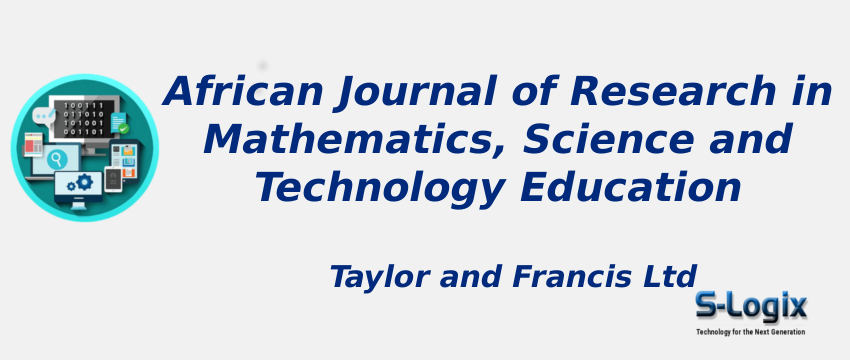Journal Home: Journal Homepage
Editor-in-Chief: Sarah Bansilal
Print ISSN: 18117295
Electronic ISSN: 24697656
Abstracting and Indexing: Scopus
Imapct Factor 2024: 0.5
Subject Area and Category: Computer Science, Computer Science Applications, Engineering, Engineering (miscellaneous), Mathematics, Mathematics (miscellaneous), Physics and Astronomy, Physics and Astronomy (miscellaneous), Social Sciences, Education
Publication Frequency:
H Index: 22
Q1:
Q2:
Q3: Engineering (miscellaneous)
Q4:
Cite Score: 1.7
SNIP: 0.492
Journal Rank(SJR): 0.250
Latest Articles: Latest Articles in African Journal of Research in Mathematics, Science and Technology Education
Guidelines for Authors: African Journal of Research in Mathematics, Science and Technology Education Author Guidelines
Paper Submissions: Paper Submissions in African Journal of Research in Mathematics, Science and Technology Education
Publisher: Taylor and Francis Ltd.
Country: United Kingdom
